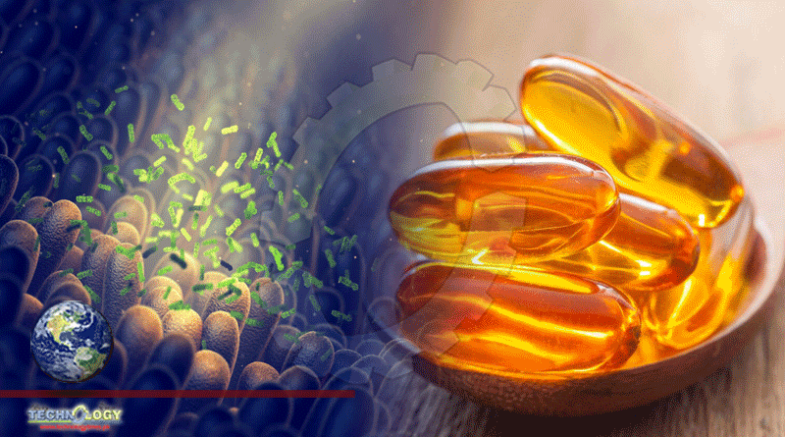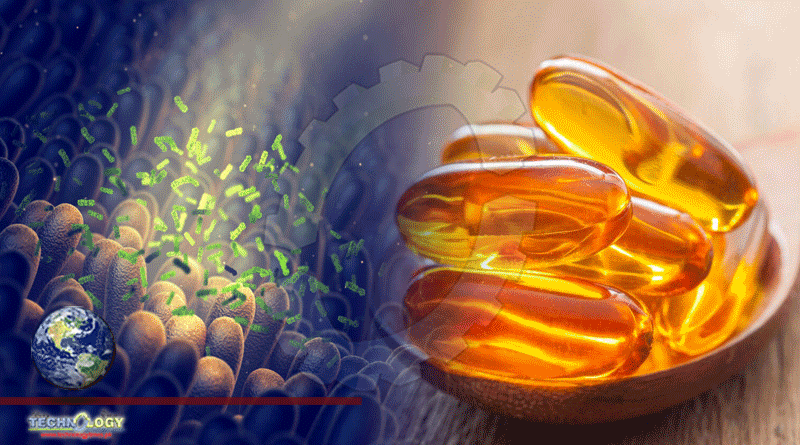the team could not find any correlation between the levels of active Vitamin D’s hormone and the regions where these men lived

The Researchers and collaborators at the University of California, San Diego recently demonstrated that in older men the levels of active Vitamin D are linked to that person’s gut microbiome, which is crucial for immunity and bone health. A new understanding of Vitamin D and how it’s usually measured was also revealed by the study in Nature Communications.
Out of the several different forms of Vitamin D, standard blood tests can only detect one amongst them, an inactive precursor that can be stored by the body. The body must metabolise the precursor in an active form in order to utilise Vitamin D. The senior author Deborah Kado, MD, Director of the Osteoporosis at UC San Diego Health said “We were surprised to find that microbiome diversity the variety of bacteria types in a person’s gut was closely associated with active Vitamin D, but not the precursor form”. He further added, “Greater gut microbiome diversity is thought to be associated with better health in general”. The study for the National Institute on Aging Aging-funded Osteoporotic Fractures in Men (Mros) Study Research Group, a large multi-site effort that started in 2000 was led by Kado.
Deborah Kado teamed up with Rob Knight, Rob Knight, PhD, professor and director of the Centre for Microbiome Innovation at UC San Diego, and co-first authors Serene Lingjing Jiang, a graduate student in the Biostatistics Program at Herbert Wertheim School of Public Health and Human Longevity Sciences, and Robert L. Thomas, MD, PhD, a fellow in the Division of Endocrinology at UC San Diego School of Medicine. Individuals with low levels of Vitamin D are at a higher risk for heart disease, cancer, and even COVID-19 infections among other diseases, as suggested by multiple reports.
Yet the biggest clinical trial conducted till date with more than 25,000 adults, concluded that Vitamin D supplements have no impact on health-related outcomes, including cancer, heart disease, or even bone health. Kado, who is also a professor at UC San Diego School of Medicine and Herbert Wertheim School of Public Health said: “Our study suggests that might be because these studies measured only the precursor form of Vitamin D, rather than active hormone”.
Kado further added, “Measures of Vitamin D formation and breakdown may be better indicators of underlying health issues, and who might best respond to vitamin D supplementation”. Stool and blood samples of 567 men who participated in MrOS were analysed by the team. The individuals who participated, all had their average age around 84, lived in six cities around the USA, and most of them reported being in good or excellent health condition.
During the research, a technique called 16s rRNA sequencing was used by the researchers to quantify and identify the types of bacteria in each stool sample based on unique genetic identifiers. A method known as LC-MSMS was used to quantify Vitamin D metabolites (the precursor, active hormone, and the breakdown product) in the bloodstream of each participant. The researchers in addition to discovering a link between active Vitamin D and overall microbiome diversity, during the study also found that 12 particular types of bacteria appeared more often in the gut microbiomes of men with lots of active Vitamin D. Out of these 12 bacteria most of them produced butyrate, a beneficial fatty acid which also helps in maintaining gut lining health.
Jiang said, “Gut microbiomes are really complex and vary a lot from person to person. When we do find associations, they aren’t usually as distinct as we found here”. As the men who participated in the study lived in different regions of the United States of America, hence these men were exposed to differing amounts of sunlight, which is one of the vital sources of Vitamin D. Not surprisingly, the men who lived in San Diego, California got the most sun along with the most precursor form of Vitamin D.
Surprisingly, the team could not find any correlation between the levels of active Vitamin D’s hormone and the regions where these men lived. Kado said, “It seems like it doesn’t matter how much Vitamin D you get through sunlight or supplementation, nor how much your body can store”. “It matters how well your body is able to metabolize that into active Vitamin D, and maybe that’s what clinical trials need to measure in order to get a more accurate picture of the Vitamin’s role in health,” Kado added. Thomas said, “We often find in medicine that more is not necessarily better”.
“So in this case, maybe it’s not how much Vitamin D you supplement with, but how you encourage your body to use it,” further stated Thomas. As pointed out by Kado, the study depended on a single snapshot in time of the microbes and Vitamin D’s found in individuals’ stool and blood. All of these factors over time can fluctuate depending on an individual’s sleep habits, environment, medications, diet, and more. More studies are required according to the team in order to better understand the role bacteria plays in deciding whether intervening at the microbiome level can be used to augment current treatments to improve bone and other health outcomes, and also understand the metabolism of Vitamin D’s due to the bacteria.
This news was originally published at Devdis Course
